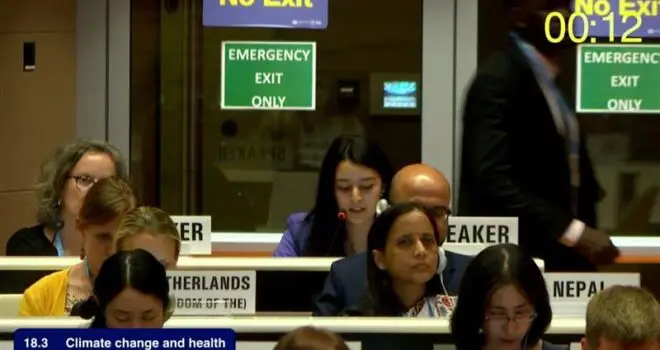Global health expert and WHF Emerging Leader Professor Mariachiara Di Cesare has been appointed Founding Director of the new Institute for Public Health and Wellbeing at the University of Essex.
Prof Di Cesare has interdisciplinary work experience in both academia and international organisations. Her research in population health uses and integrates concepts, data and methods from demography, epidemiology, statistics, and social science. Her work is influencing policy worldwide and over the past year she has contributed to the scientific response to COVID-19 by looking at novel approaches to identifying outbreaks, excess mortality, and the overall response to the COVID-19 pandemic.
The Institute for Public Health and Wellbeing will open in February 2022 and will harness Essex’s strengths in delivering research, innovation and impact to help improve health and tackle inequality across the globe. It will build on Essex’s worldwide reputation for social science, human rights and data analytics to create a unique hub to support policymakers, health providers and frontline health professionals.
Prof Di Cesare, who starts her role in January 2022, said: “I am extremely excited to join the team at Essex. The work the University of Essex is doing in the field of public health and wellbeing is outstanding. I look forward to working with colleagues to create those synergies aimed at ensuring that the work of the Institute of Public Health and Wellbeing will actively support the development of a fairer society. Now, more than ever before, we need to be sure we leave no one behind.”
The new institute will focus on social, biological and environmental determinants of health; interventions, outcomes, evaluations and policy; wellbeing and health promotion; and human rights, community participation and voice. There will also be two cross-cutting themes. Firstly, inequality and its impacts on health and wellbeing; and, secondly, the use of novel data science, quantitative and qualitative research methodologies and artificial intelligence techniques for improving health and well-being.
Professor Chris Greer, Pro-Vice-Chancellor (Research), said: “Chiara is an outstanding academic whose research is already having significant regional, national and international impact. We’re thrilled she will be leading the Institute to deliver new insights, lead fresh debates, uncover trends, listen to service users, improve services and help inform better decisions by sector leaders.”
Prof Di Cesare is currently Professor of Population Studies and Global Health at Middlesex University and Honorary Research Fellow at Imperial College London.
She is leading a pilot study for SARS-CoV-2 wastewater surveillance in schools supported by the Department of Health and Social Care. Her research on global trends in obesity is used by the World Health Organisation (Global Health Observatory) as official estimates and is used to inform policies. In 2018 she led the successful application to the WHO Essential Medicine List for the inclusion of non-vitamin K anticoagulants for the treatment of atrial fibrillation to prevent stroke. She is currently a member of the core team of the Independent Expert Group of the Global Nutrition Report and a member of the World Heart Federation Observatory Advisory Group bringing her expertise in metabolic risk factors in general and malnutrition in particular.
“Mariachiara is a rising star in the field of public health,” said WHF Senior Science Advisor Prof Pablo Perel. “Since her participation in the Emerging Leaders seminar in China in 2018, she has been actively engaged with the World Heart Federation and was instrumental in the ultimately successful effort to add new oral anticoagulants (NOACs) to the WHO Essential Medicines List. She is now bringing her vast experience in cardiovascular epidemiology to the Advisory Committee for the new WHF Observatory.”
Prof Di Cesare’s work has focused on the epidemiology and public health of obesity and undernutrition, the role of early nutrition on child development, whether, and how much, changes in metabolic risk factors have contributed to the decline in cardiovascular mortality, and the extent of within and between countries inequalities in non‐communicable diseases mortality and associated risk factors.


